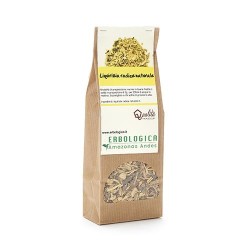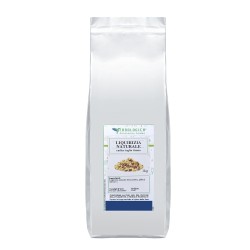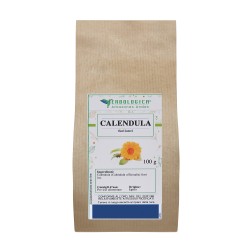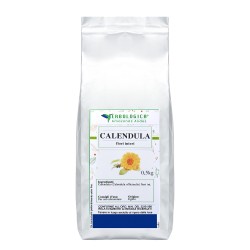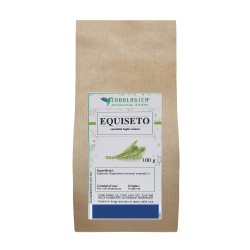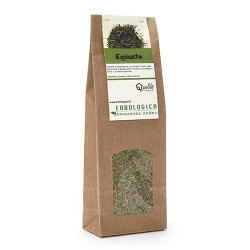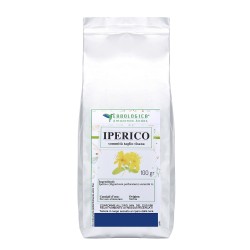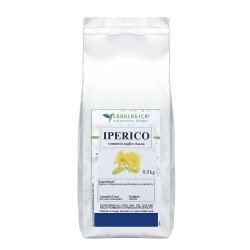
Per secoli, i rimedi a base di erbe sono stati utilizzati per migliorare l'aspetto generale della pelle.
Dalle antiche civiltà alla società moderna, le erbe sono state utilizzate per trattare i disturbi della pelle, fornendo benefici naturali di guarigione e di abbellimento.
Oggi esistono numerose erbe medicinali note per migliorare l'aspetto della pelle.
Dal lenire arrossamenti e infiammazioni al nutrire il tessuto cutaneo e promuovere la rigenerazione cellulare, questi rimedi a base di erbe offrono una soluzione sicura ed economica per migliorare la salute della pelle.
Oltre alle loro qualità curative, queste erbe medicinali possono anche aiutare a ridurre la comparsa di rughe, acne e altri inestetismi della pelle.
Se siete alla ricerca di un modo completamente naturale per migliorare l'aspetto della vostra pelle o se avete semplicemente bisogno di un rimedio delicato per mantenere la vostra pelle al meglio, queste erbe medicinali sono un'ottima opzione da prendere in considerazione.
Introduzione
I rimedi a base di erbe sono stati utilizzati per secoli per trattare vari tipi di condizioni cutanee e migliorare l'aspetto generale della pelle.
Dalle antiche civiltà alla società moderna, le erbe sono state utilizzate per trattare i disturbi della pelle, fornendo benefici naturali di guarigione e di abbellimento.
Oggi sono numerose le erbe medicinali note per migliorare l'aspetto della pelle.
Dal lenire arrossamenti e infiammazioni al nutrire il tessuto cutaneo e promuovere la rigenerazione cellulare, questi rimedi a base di erbe offrono una soluzione sicura ed economica per migliorare la salute della pelle.
Oltre alle loro qualità curative, queste erbe medicinali possono anche aiutare a ridurre la comparsa di rughe, acne e altre imperfezioni della pelle.
Se siete alla ricerca di un modo completamente naturale per migliorare l'aspetto della vostra pelle o semplicemente avete bisogno di un rimedio delicato per mantenere la vostra pelle al meglio, queste erbe medicinali sono un'ottima opzione da prendere in considerazione.
Cosa sono le erbe medicinali?
Le erbe medicinali sono piante utilizzate per curare e mantenere la salute del corpo umano.
Sebbene le erbe siano spesso associate a ricette culinarie, vengono utilizzate anche in vari prodotti per la salute e la bellezza.
Esistono centinaia di erbe medicinali che si ritiene apportino benefici alla pelle, tra cui le seguenti:
Aloe Vera, Camomilla, Calendula, Comfrey, Radice di Liquirizia, Equiseto, Erba di San Giovanni e Trifoglio rosso.
Aloe Vera
L'aloe vera contiene numerose vitamine e minerali, tra cui la vitamina A, E e C, oltre a manganese, rame, zinco e ferro.
Questa erba è comunemente usata come idratante della pelle per ridurre infiammazioni e arrossamenti e promuovere la guarigione.
L'Aloe Vera è stata utilizzata anche come efficace trattamento dell'acne, in quanto possiede proprietà antibatteriche in grado di prevenire la crescita dei batteri che causano l'acne.
La camomilla, un ingrediente comune nei prodotti per la cura della pelle, è un trattamento efficace per arrossamenti e irritazioni.
Questa erba medicinale contiene proprietà antinfiammatorie e antiossidanti che possono migliorare l'aspetto della pelle.
La camomilla favorisce inoltre la produzione di collagene, che può ridurre la comparsa di linee sottili e rughe.
Conosciuta anche come calendula, questo rimedio erboristico è stato usato per secoli per trattare vari tipi di condizioni della pelle.
È stato dimostrato che la calendula è efficace nel trattamento di acne, psoriasi ed eczema.
Questa erba ha proprietà antinfiammatorie che possono ridurre il gonfiore e l'irritazione, nonché proprietà antibatteriche che possono prevenire la crescita dei batteri che causano l'acne.
La radice di liquirizia è comunemente usata nei prodotti topici per la cura della pelle per ridurre l'infiammazione e promuovere la guarigione.
Questo rimedio erboristico ha proprietà antinfiammatorie che possono ridurre la comparsa di arrossamenti e irritazioni.
Molte persone usano la liquirizia anche come rimedio casalingo per prevenire l'acne, in quanto ha proprietà antimicrobiche che possono impedire la crescita dei batteri che causano l'acne.
L'equiseto, comunemente usato come integratore erboristico, è anche un efficace rimedio erboristico per la pelle.
Questa erba ha proprietà antinfiammatorie che possono ridurre il gonfiore e il rossore associati all'acne e ad altre condizioni della pelle.
Si ritiene inoltre che l'equiseto favorisca la crescita di nuova pelle, riducendo la comparsa di rughe e linee sottili.
Erba di San Giovanni
L'iperico è comunemente usato come rimedio casalingo per prevenire l'acne e ridurre l'infiammazione e il rossore associati alle condizioni della pelle.
Questa erba medicinale ha proprietà antinfiammatorie e antiossidanti che possono guarire la pelle e promuovere la crescita di nuova pelle.
Si ritiene che l'iperico sia efficace anche nel trattamento dell'eczema e della psoriasi.
Il trifoglio rosso è comunemente usato nei prodotti topici per la cura della pelle e per ridurre l'infiammazione.
Questa erba ha proprietà antinfiammatorie che possono lenire la pelle e ridurre la comparsa di arrossamenti e irritazioni.
Il trifoglio rosso è comunemente usato come rimedio casalingo per prevenire l'acne, poiché si è scoperto che ha proprietà antimicrobiche in grado di prevenire la crescita dei batteri che causano l'acne.
Benefici dell'uso di erbe medicinali per la salute della pelle
Proprietà antinfiammatorie
Molte delle erbe medicinali comunemente utilizzate nei prodotti per la cura della pelle hanno proprietà antinfiammatorie che possono ridurre arrossamenti e irritazioni.
Ciò è vantaggioso per le persone con pelle sensibile, poiché le erbe antinfiammatorie possono aiutare a lenire la pelle senza causare ulteriori irritazioni.
Si ritiene inoltre che le proprietà antinfiammatorie delle erbe medicinali stimolino la produzione di collagene, contribuendo a ridurre l'aspetto di linee sottili e rughe.
Proprietà antiossidanti
Un altro aspetto benefico delle erbe medicinali per la salute della pelle è rappresentato dalle loro proprietà antiossidanti.
Molte delle erbe comunemente utilizzate nei prodotti topici per la cura della pelle hanno proprietà antiossidanti che possono ridurre i segni dell'invecchiamento.
Ciò include la prevenzione di rughe e linee sottili, nonché la formazione di macchie dell'età e macchie solari.
Promuove la produzione di collagene
Molte delle erbe medicinali comunemente utilizzate nei prodotti per la cura della pelle sono risultate in grado di promuovere la produzione di collagene. Il collagene è una proteina essenziale per il funzionamento sano della pelle, compresa la riduzione di rughe, linee sottili e macchie dell'età.
La promozione della produzione di collagene è benefica per tutti i tipi di pelle, in quanto può contribuire a migliorarne l'aspetto e la salute.
Promuove la crescita di nuova pelle
È stato riscontrato che diverse erbe comunemente utilizzate nei prodotti per la cura della pelle promuovono la crescita di nuova pelle.
Ciò è vantaggioso per le persone affette da acne, in quanto può contribuire a ridurre l'aspetto delle cicatrici dovute all'acne.
La promozione della crescita di nuova pelle è utile anche a chi soffre di patologie come la psoriasi e l'eczema, in quanto può contribuire a ridurre la comparsa di lesioni e cicatrici.


